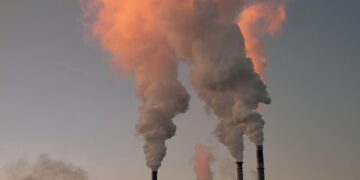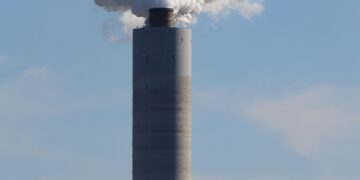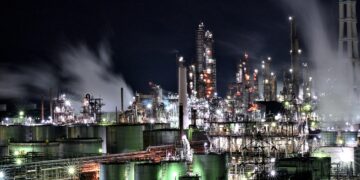Adapting Agricultural Techniques for a Warming World
Introduction
As the planet faces an escalating climate crisis, the agricultural sector stands at the forefront of needing urgent adaptation strategies. Rising temperatures, unpredictable weather patterns, and extreme climate events all threaten food security globally. This article explores effective strategies and innovative practices that can help farmers adapt to these challenges, ensuring a sustainable and productive future for agriculture in a warming world.
The Impact of Climate Change on Agriculture
Climate change manifests through higher temperatures, altered rainfall patterns, and increased frequency of extreme weather events, all of which impose severe stress on agricultural productivity. The necessity for adaptation strategies becomes clear as these changes threaten the very backbone of global food security.
Rising Temperatures and Crop Yields
Increasing temperatures can reduce crop yields significantly, especially in regions where temperatures already approach the critical survival thresholds for common crops like wheat, rice, and maize. Heat stress leads to shorter growing periods, reduced photosynthesis, and lower reproductive performance, thereby decreasing yields and the quality of crops.
Shifts in Rainfall Patterns
Changes in rainfall patterns can lead to either excessive soil moisture or prolonged droughts, each affecting crop yields differently. While too much rain can lead to soil erosion and nutrient leaching, insufficient rainfall makes it difficult for crops to survive unless drought-resistant practices are implemented.
Extreme Weather Events
More frequent and severe extreme weather events, such as hurricanes, floods, and droughts, disrupt agricultural operations and supply chains. These events pose a real-time risk to food production, affecting both the quantity and quality of the food produced.
Adaptive Strategies in Agriculture
Understanding the challenges posed by climate change enables stakeholders in the agricultural sector to implement targeted adaptive strategies. These strategies are aimed at sustaining productivity and protecting ecosystems.
Development of Climate-Resilient Crop Varieties
One significant adaptation measure is the development of crop varieties that can endure climatic stresses. Through genetic modification or traditional breeding techniques, agronomists are developing drought-tolerant, heat-resistant, and flood-resistant crops that can thrive under altered climatic conditions.
Improved Soil Management
Enhancing soil fertility and structure can significantly improve water retention and resistance to erosion. Practices such as crop rotation, cover cropping, and the use of organic composts help maintain the health of the soil, thereby supporting more robust crop growth in adverse conditions.
Water Management Techniques
Efficient water use and improved irrigation systems are crucial, especially in areas likely to experience increased incidence of drought. Technologies like drip irrigation and systems that leverage rainwater harvesting can maximize water efficiency in agricultural practices.
Integrating Agroforestry
Incorporating trees into farming landscapes, a practice known as agroforestry, can mitigate climate impact by providing shade, reducing soil erosion, and enhancing biodiversity. This integration can also improve resilience by diversifying farm output and thus economic stability for farmers.
Incorporating Advanced Technologies
Innovation in technology not only enhances traditional farming practices but also introduces entirely new methods for tackling agricultural challenges.
Precision Agriculture
Precision agriculture utilizes data and technology to make farming more accurate and controlled. Geographic Information Systems (GIS), drones, and IoT sensors can help monitor crop health, optimize water usage, and manage resources more efficiently, minimizing waste and increasing crop yields.
Climate Forecasting Models
Advanced climate models and weather tracking tools offer farmers critical insights into weather patterns, allowing them to plan better and mitigate risks associated with unexpected climatic changes.
Policy and Global Cooperation
While on-ground adaptation strategies are crucial, they must be supported by robust policy frameworks and international cooperation. Investments in research and development, education for farmers on climate resilience, and subsidies for the adoption of innovative technologies are all essential policies that can facilitate the transition towards a more sustainable agricultural paradigm.
Conclusion
Adapting agricultural techniques to overcome the challenges posed by a warming world is not just about survival but about moving forward sustainably. The integration of resilient crops, efficient water management, precision agriculture, and strong policy support are among the many strategies that can help secure the future of global agriculture. As the world continues to warm, the ability of our agricultural systems to adapt will be paramount in safeguarding food security for generations to come.
FAQs
What are some examples of climate-resilient crops?
Crops like drought-resistant varieties of corn, flood-tolerant rice, and heat-tolerant wheat are some examples of climate-resilient crops being developed and utilized worldwide.
How can technology help in adapting agriculture to climate change?
Technologies such as satellite imagery, sensors, and climate models help in better planning and resource management, making agriculture not only more resilient to climate change but also more efficient and productive.
What role does government policy play in agricultural adaptation?
Government policies are critical as they can provide the necessary funding, infrastructure, and regulatory framework to support the adoption of advanced agricultural technologies and practices that are necessary for adaptation to climate change.











